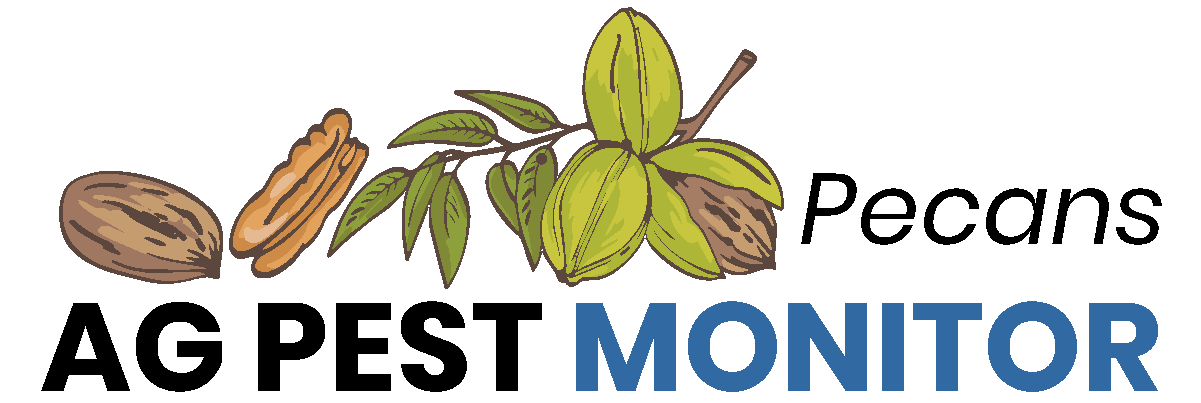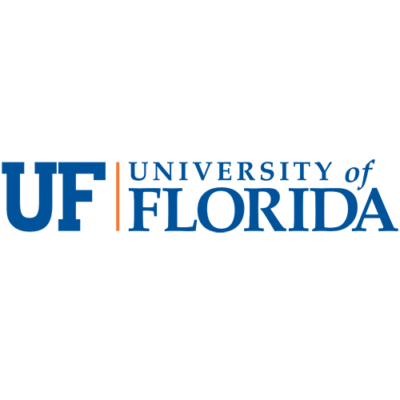Welcome to the new home of the Pecan ipmPIPE
We have recently relaunched the Pecan ipmPIPE under a new banner of AgPest Monitor. With the relaunch, we have brought back the Risk Map for Pecan nut casebearer (PNC) and PNC Forecast tool.
We have just had our first confirmed biofixes for PNC and are asking willing individuals to join the monitoring effort. Join our efforts to help minimize losses from PNC by requesting to join the monitoring network.
Our mission: regional participation in a national, integrated system providing useful, reliable information and tools for IPM practioners
About Ag Pest Monitor: Pecans
The objective of Ag Pest Monitor: Pecans is to familiarize users with the primary nuisance and beneficial arthropods associated with pecans. The ability to identify them combined with a knowledge of their biologies will allow pest management decisions to be made in time to minimize damage.

Who We Are
The Pecan Advisory Board and the producer network provides ongoing input on how to improve the present program and what additional needs should be addressed. Feedback is also solicited from the producer community by using producer organized venues like the annual meeting of regional organizations (there is currently no belt-wide producer meeting for pecan producers).
The objective of Pecan IPM PIPE is to familiarize users with the primary nuisance and beneficial arthropods associated with pecans. The ability to identify them combined with a knowledge of their biologies will allow pest management decisions to be made in time to minimize damage.
The mission of the Beltwide Pecan ipmPIPE Program is regional participation in a dynamic, integrated national system that provides useful, reliable information and tools for IPM practitioners throughout the pecan belt, the principal states where at least some commercial pecans are grown. Our vision is to develop the ipmPIPE to help maximize economic returns, and improve social welfare and environmental health by promotion of efficient and coordinated IPM decision support systems. Read more about the national system’s background and mission.
Our History
The Pest Information Platform for Extension and Education (PIPE) began as a USDA-initiated Internet-based response to the discovery of soybean rust in 2005 in Louisiana. The program activated interactions and informed soybean stakeholders (producers, advisors, scientists, industry, agencies, consumers and others) of disease risk posed by this pathogen in near real time throughout soybean fields across the nation in the 2006 and subsequent years to the present. The program was expanded in 2007 to include the soybean aphid in risk assessments in the soybean pest complex, and to key pests of other commodities (legumes, cucurbits and pecan) in 2008.
The Pecan ipmPIPE program was organized during 2008 and winter/spring of 2009 by scientists (S-1049) and pecan producers (Pecan ipmPIPE Producer Advisory Board with representatives from pecan producer organizations) to plan, develop and launch the initial Pecan ipmPIPE Web site in April 2009.
The organization/planning phase included poster and oral presentations by pecan scientists to introduce the program to pecan growers at annual meetings across the pecan belt.
The stakeholder organizational structure that resulted from this process is documented in papers presented in producer-oriented publications (i.e., Pecan Grower–Fall Issue 2008; Pecan South–April 2009). The organization now includes an extensive (120+) Pecan ipmPIPE producer network that provides near real-time information from the field on pecan nut casebearer, which is the target of Phase I risk assessment to aid decision making by producers.
Ag Pest Monitor: Pecan Team
Apurba Barman – University of Georgia
Kyle Slusher – Texas A&M AgriLife Extension Service
Project Director
Marvin K. Harris, Ph.D. – Department of Entomology, Texas A&M University (Retired)
Peer Cooperators
Jamshid Ashigh, Ph.D. – Extension Weed Specialist, Herbicide Specialist, Assistant Professor, Dept of Extension Plant Sciences, New Mexico State University
Ted Cottrell, Ph.D. – ARS, USDA, Georgia
Jim Dutcher, Ph.D. – Department of Entomology, University of Georgia (Retired)
Henry Fadamiro, Ph,D. – Department of Entomology and Plant Pathology, Auburn University
Elena Garcia, Ph.D. – Department of Horticulture, University of Arkansas
Charles Graham, Ph.D. – Louisiana State University AgCenter
Donn T. Johnson, Ph.D – Fruit and Pecan Entomology, University of Arkansas
Jackie Lee, Ph.D. – Extension Pesticide Coordinator, Oklahoma State University
Brad Lewis – Department of Plant Pathology and Weed Science, New Mexico State University
Russ Mizell III. Ph.D. – University of Florida, Professor of Entomology, North Florida Research and Education Center
Monte Nesbitt, Ph.D. – Texas AgriLife Extension
Bill Ree – Texas A&M AgriLife Extension (Retired)
Bill Reid, Ph.D. – Department of Entomology, Kansas State University
David Shapiro-Ilan, Ph.D – Insect Pathologist, ARS, USDA, Georgia
Associate Members
Wayne Bailey, Ph.D. Division of Plant Sciences, University of Missouri
Alejandro Calixto, Ph.D. – Texas AgriLife Research, Texas A&M University
Allen Knutson, Ph.D. – Texas AgriLife Extension, Texas AgriLife Research (Retired)
Leo Lombardini, Ph.D. – Department of Horticulture, Texas A&M University
Randy Luttrell, – Ph.D. – Southern Insect Research Management Research Unite, USDA-ARS
Phil Mulder, Ph.D. – Entomology and Plant Pathology, Oklahoma State University











